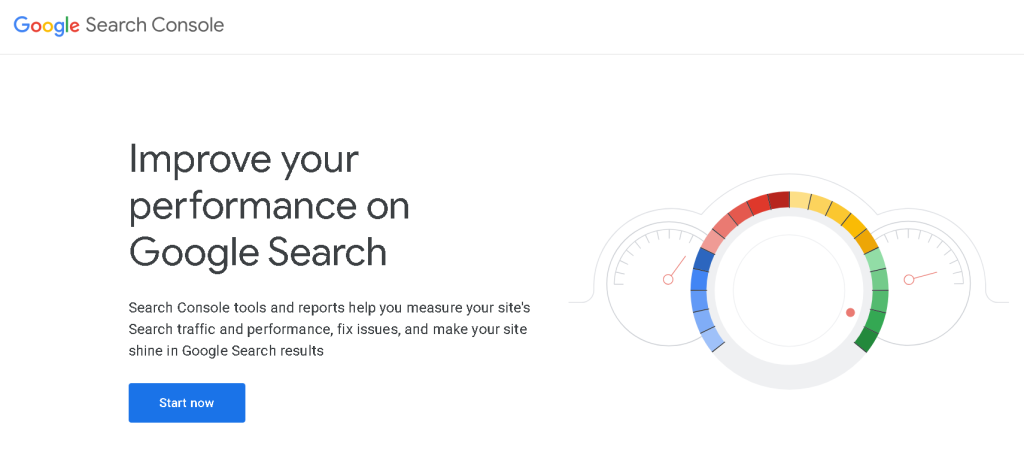SEO tracking is an important part of any good online marketing plan. It means keeping track of how well your website’s SEO is doing by using different SEO tools. By looking at various metrics, you can understand how good your SEO plans are working.
Keeping a close watch on your website helps you find ways to make it better, see if your strategies are working, and use data to improve the site. SEO tracking tools give you the data you need to improve your SEO plan.
Keeping track of how well your website is doing with SEO can help you get more visitors who are interested in what you offer. This post talks in detail about the various SEO metrics you should monitor regularly and also lists a few tools to do the same.
What is SEO Tracking?
SEO tracking means looking at key SEO metrics to see how well your SEO efforts are working. This means checking how well your plans are working and changing how you do things based on what the data tells you.
By looking at these metrics, you can find out what SEO strategies are successful and which ones need to be better. It helps you see how well your website is doing in search engine results and gives information about how users interact with your site.
This can help you improve your website, and bring in more people who are likely to become customers. This ongoing process is important for maintaining and improving how you appear online and staying competitive.
SEO experts meticulously track key metrics like organic traffic, keyword rankings, and conversion rates to measure and optimize progress effectively
Why Is It Important to Monitor SEO Performance?
As more people use Google to shop, find services, and get information, it’s getting more important to know where your business appears in search results. SEO metrics help you see how well you’re doing online.
These measurements will help you make changes that can boost your company’s overall success. When you check how well you’re doing often, you make sure you’re following the right steps to reach your SEO goals. Keeping an eye on SEO metrics helps you:
Find and Fix Problems
Keeping an eye on SEO performance helps you spot and fix issues quickly that might hurt your search engine rankings. Checking things like crawl errors, broken links, and how fast pages load often can show issues that need quick fixing.
If search engines have trouble accessing your website because of technical problems, your pages might not be indexed, which means fewer people will see them. By monitoring these numbers, you can quickly fix technical SEO problems.
This active plan keeps your website running well and stops it from falling in search rankings, protecting your online visibility and making sure your audience can always find you.
Check How Well Your SEO Strategy Works
Monitoring your performance in SEO is important to see how well your strategies and campaigns are doing. By looking at numbers like website visits, keyword positions, and sales rates, you can see which strategies are working well and which ones need changes.
If a certain keyword is bringing in a lot of visitors and sales, you can put more effort into improving that keyword. On the other hand, if a strategy isn’t working well, you can improve it or change it to a better one.
Keeping a close watch on your SEO work helps it match your business goals and gives you the results you want. This lets you use data to make smart choices that improve your overall plan.
Learn User Behavior
By looking at data on how people use your website, like which pages they go to, how long they stay, and what they do, you can better understand what is important to your audience.
This can help you create better content and improve your website, so it meets what users want and gives them a good experience. By making your content fit what users like, you can get more people interested, and keep them from leaving your site quickly.
Monitoring how well your website ranks on search engines gives important information about what users like and how they act. This helps you create a marketing plan that feels more personal and works better for the people you want to reach.
Keep Ahead of Your Competitors
Checking your SEO performance regularly helps you stay ahead of your competitors by being updated on changes in how search engines work and what’s happening in your industry.
By watching how your keywords rank and comparing them to your competitors, you can find spots where you need to get better or try new ideas. Updating your plans when needed helps you stay ahead in search engine results.
Being alert helps you take advantage of new chances and keeps you from getting left behind in the digital world. Taking action in your SEO work helps your business stay noticeable and competitive, which brings in more visitors and possible customers.
Adapt to Search Engine Algorithms
Search engines often change their algorithms to make search results better and improve the user experience. These updates can greatly affect how well your website ranks, how visible it is, and how much traffic it gets.
By regularly checking how well your SEO is doing, you can quickly spot any changes or drops in your rankings that might be caused by updates to search engine rules. This lets you quickly change your SEO plans, making sure your website follows the newest rules.
Being proactive about changes in algorithms helps keep your website visible in search engines, so potential customers can discover you. Regularly checking how well you’re doing helps you take advantage of new SEO chances that come up with updates.
How to Monitor SEO?
SEO metrics help you see how well your website is doing in search engines. They allow you to watch for trends and changes as time goes on. There are many pieces of information to consider, but not all of them will be important for what you want to achieve.
Actually, the main problem most website owners have is not having enough data. Tracking tools provide a lot of useful information. The problem is figuring out which numbers you should focus on the most.
Choose the Right SEO Metrics
To track your SEO work well, you need to have clear goals. What do you want to accomplish with your campaign? Your SEO goals should be clear, easy to measure, realistic, important, and set for a certain time.
The SEO metrics you follow should connect directly to your goals. For example, if you want to bring the right visitors to your website and sell products, make sure you track how well your site is converting visitors into customers.
After you decide what you want to achieve with your campaign, you can choose the SEO metrics that will help you track how you’re doing.
Regularly Monitor Your Performance
If you’re new to SEO, it’s common to look at your data a lot at first, but then lose interest and check it less as time goes on. A good SEO strategy takes time to work and show results.
It’s important to regularly check your tools and reports to find trends and chances to improve. This helps you focus on the plan, not just the outcomes. You can also make charts to see how things improve over time.
Top Tools for Measuring SEO Metrics
If you want to attract more visitors to your website, gain more email signups, or increase sales, you need a way to track what’s currently going on on your site. The tools below will help you do it. Use any of these SEO tools you need to get the information that matches your goals.
Google Search Console
It is a helpful tool for checking how well your website is doing in search engines. It shows how your website does in Google Search, including things like how many times it appears, how many people click on it, and its average ranking.
You can send sitemaps and specific URLs for Google to check, see how well your site is indexed, and get notifications about problems on your site. The URL Inspection tool gives you clear data like, if it can crawl, index, and show it to users.
Google Analytics
This is a free and helpful tool that lets you see what visitors do when they come to your website. It is really good for tracking how well you are turning visitors into customers. It has more than 100 different reports and offers many ways to customize them.
You can use Google Analytics to look at organic traffic separately or monitor your SEO campaigns with UTM codes. Monthly and yearly reports can show how much you’ve improved over time.
Semrush
Semrush is a complete tool for checking SEO metrics. It gives information about how well a website shows up in search results, its keyword positions, how many people click on it, and how many of those lead to purchases.
With Semrush, you can check how well your website is doing, find which keywords work best, and look at what your competitors are doing. The platform provides clear reports and information to help you improve your SEO efforts.
Ahrefs
This free tool from Ahrefs that lets you see your position in search results for any keyword. With a paid account, you can easily view important SEO information on the dashboard.
It gives data like organic traffic, which keywords you’re ranking for, the websites that link to you, and the number of backlinks you have. You will also be able to use tools to find keywords and Site Explorer, which tells you all the keywords that your site ranks for.
Also Read: Transform Your SEO Game: The 12 SEO Report Templates Every Marketer Needs
Key Metrics to Monitor in SEO Tracking
Visibility Metrics
Visibility metrics help you see how well your pages are doing for the keywords you want to rank for. The more words your website shows up for, the easier it is for people to find it in search results.
Keyword Rankings
A complete SEO plan will focus on picking the right keywords and creating content. To check how well your SEO is doing, you should keep an eye on your keyword rankings. This will help you see how good your content is for the keywords you’re focusing on.
One web page can show up in search results for many different keywords. Their keyword ranking report shows all the words your pages are using and how well those pages are doing. Look at the report to find the best content and the pages that need work.
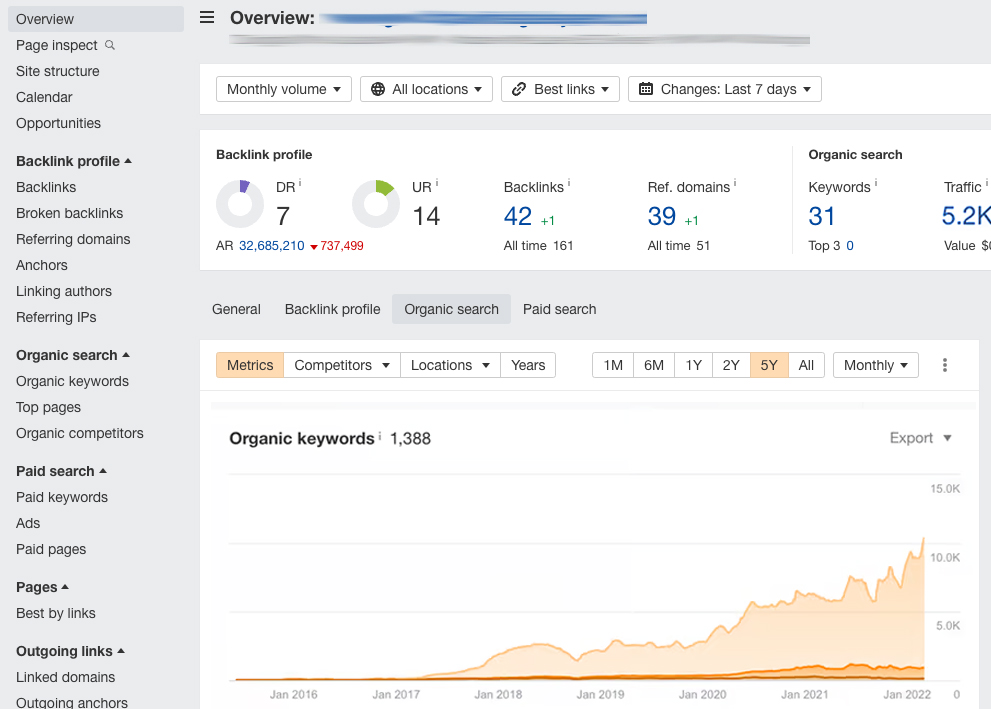
To get good rankings, content must be found by search engines and get links from other websites. This may take a few weeks, so don’t expect your new content to show up high in search results right away.
Page Rankings
Besides looking at how well your keywords are doing, you should also check the ranking of each of your pages. This is very important for your homepage and some key pages, like your location or service pages.
The tools above show you information about your best-performing pages. You can find out how much traffic they get and which keywords they rank for, among other things. Check your important pages often to notice any changes in visitors that might affect your business.
As you start to rank better, you’ll likely see changes in things like website visits, how often people click your links, and how many take action. If those numbers stay the same, like if you’re getting a lot of new visitors but not many sales, you should figure out why being more visible in search engines isn’t helping your other numbers.
Engagement Metrics
Are people visiting your website? What are they doing when they arrive? Engagement metrics show you if your SEO strategy is bringing the right visitors to your site.
Organic Traffic
Organic traffic is visitors to a website that come from search results when people look for something online. Qualified organic traffic is very important because the people who clicked on your link from search results are interested in what you have.
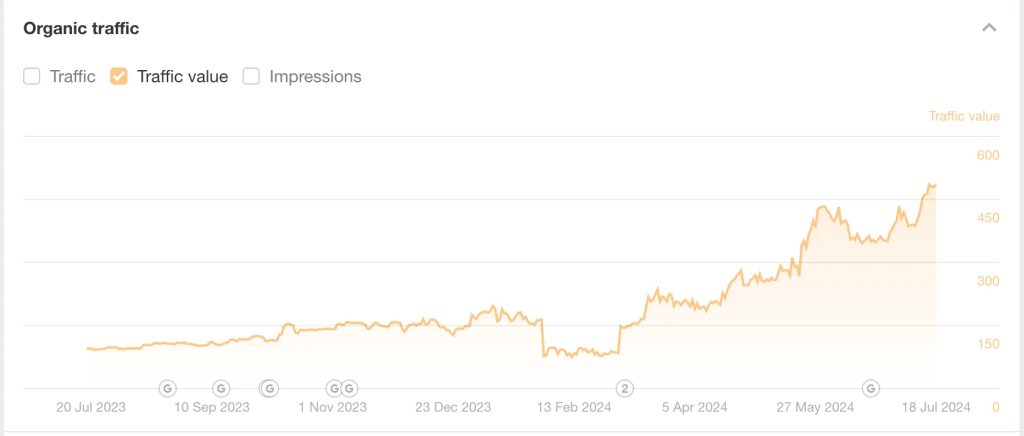
These visitors looked for a specific word and decided to come to your site after seeing your search summary. This number doesn’t count traffic from paid ads, social media, or email marketing.
Along with total organic traffic, you should also keep an eye on new visitors and returning visitors. This will give you an idea of who is visiting your site organically and if your content strategy has worked.
Click-Through Rate
Click-through rate is a way to measure how many people click on your website after seeing it in the results page. It compares the number of visitors to how many times your site shows up in those results.
For example, if a webpage gets 6000 views in a week and has 100 clicks, it has a CTR of 1.6%. Another page got 2800 views and 70 clicks, which means it has a CTR of 2.5%. Although fewer people looked at the second page, more of them decided to click on it.
CTR can help you see how well your SEO page title and meta description are doing and if they are interesting enough to make people want to visit your page. It can help you see if your page matches what people are looking for when they use that keyword.
Pages Per Session
Pages per session shows you how many different pages, on average, visitors look at on your site. To find out how many pages people view in each session, divide the total number of page views by the number of sessions.
A higher number of this metric means that visitors are looking at more pages on your website instead of just the first page they see. These numbers are only a small part of the whole picture.
Conversion Metrics
Organic traffic and CTR are important measures because they show how many people clicked on a link from search results. They can help us understand both conversions (people taking an action) and engagement (interest in the content).
Figuring out which pages are getting visitors and which ones have low click rates can help you understand what is successful and where you need to improve. Make sure you are keeping an eye on these important numbers too.
Organic Conversion Rate
Conversions show whether visitors are using your site or doing something specific. This is one of the key measures for online shopping websites. A conversion doesn’t always mean making a sale.
It can be any action that helps a website visitor get closer to making a purchase, like signing up for emails, creating an account, or filling out forms. To track conversions, figure out which actions customers take that matter to your business.
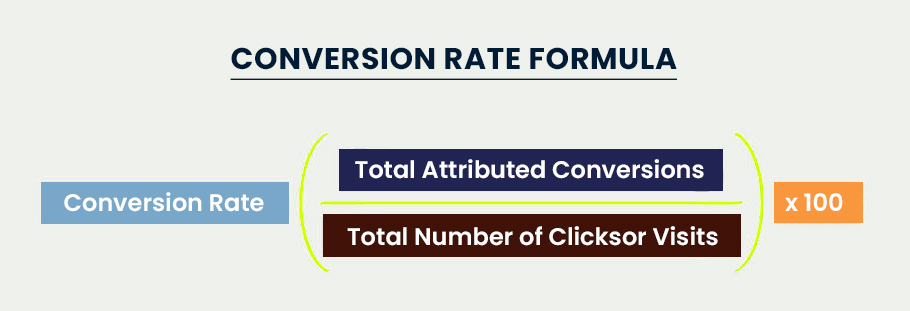
Add your goals to Google Analytics and keep an eye on the numbers to see how SEO is helping you make money. The conversion rate is found by dividing the number of conversions by the total clicks, then multiplying the result by 100.
Sales Conversion Rate
Your sales conversion rate is how many sales you get from a product or service page compared to the total number of visitors who come to that page for free. It helps you see which of your pages, products, or services are making the most sales.
It also tells you which ones need some improvements. You can track this measurement in Google Analytics by setting up a goal and watching how many times it gets completed.
Also Read: How Can a Technical SEO Consultant Improve Your Website’s Performance?
Technical SEO Metrics
Important technical SEO metrics include how fast the page loads, which helps users have a better experience; mobile-friendliness, making sure the site works well on phones; and indexability, which looks at how many pages search engines have indexed.
Also, keeping an eye on crawl errors is important to find problems that stop search engines from properly indexing your pages. Having a secure HTTPS connection helps users feel safe and can improve your website’s search engine ranking.
Indexed Pages
For a page to appear in results pages, it needs to be indexed first. Google often checks websites, but it might take a few days for a new page to show up in search results. You can make an Index Coverage Report using Google Search Console to check:
- Which pages are found?
- Which pages are indexed?
- Problems in indexing
As you add more content, the number of pages listed in your Index Coverage Report should go up. If they don’t, look at your Google Crawl Stats report to see if Googlebot has found any problems.
Page Speed and Core Web Vitals
Web pages with videos and pictures are fun to use, but they can also make the pages take a long time to load. Sadly, Google reports that 53% of people using mobile phones leave a webpage if it takes more than 3 seconds to load.
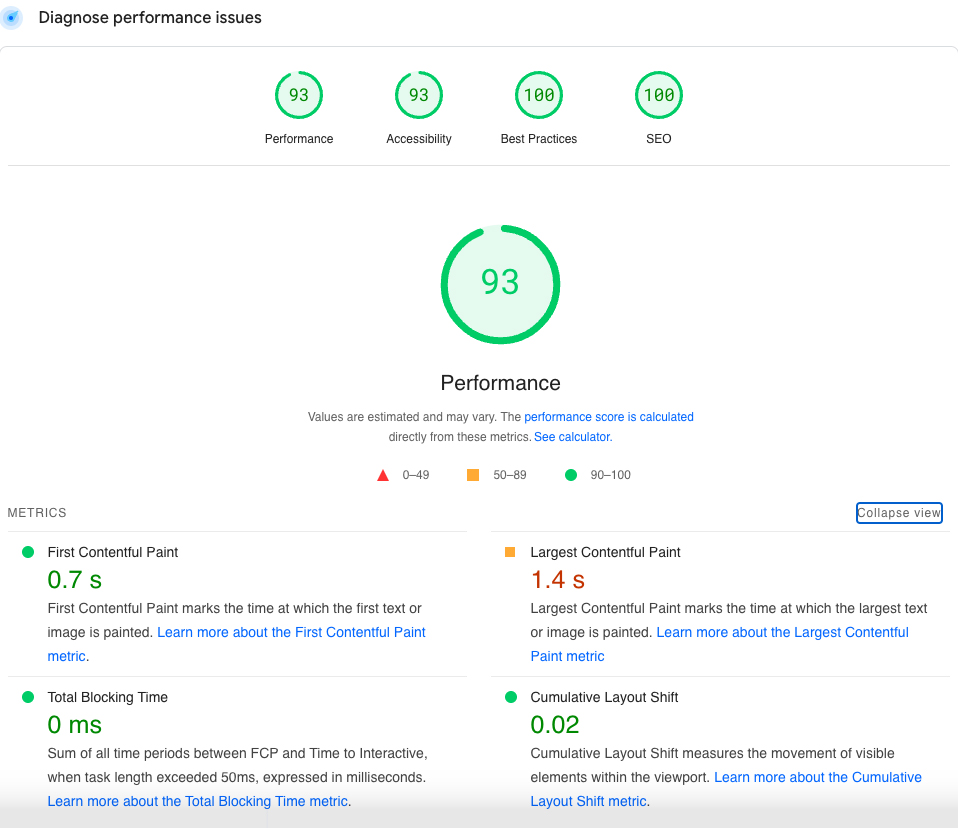
You need to have good content and quick loading times to make sure users have a great experience. Google’s PageSpeed Insights looks at how fast and well a web page works on mobile and desktop devices. It also gives tips on how to make it better, like:
- Loading time
- The time it takes for someone to start using a page in the site
- The time that visuals stay stable on the screen
Wrapping Up
SEO tracking is important for keeping your website showing up well in search results. By regularly checking important SEO metrics like how much traffic you get, where your website ranks for keywords, how many visitors leave quickly, and how many take action, you can learn how well your SEO efforts are working.
This ongoing review helps you find ways to get better, improve your strategies, and use data to make choices that boost how visible your site is and how users feel about it. By tracking these numbers, you help your website stay competitive.
It also helps draw in the right visitors, and get more people to take action. In the end, good SEO tracking is very important for helping a business grow and succeed in the changing online world. Keep working on your SEO to improve and maintain your online visibility.
FAQs
How to do SEO tracking for my website?
To track SEO, first figure out what goals are important for your business. These might include how much traffic is organic, where your keywords rank, and how many visitors turn into customers. Set up tracking codes and goals in Google Analytics to see how many people complete actions like filling out forms, making purchases, or downloading files. Check your tracking setup regularly and make changes if needed.
What are some usual challenges in SEO tracking?
Some common challenges are getting accurate data, updates to search engine algorithms, and the difficulty of tracking many different metrics. To make sure the data is correct, you need to set up tracking tools properly and check them regularly. Changes in algorithms can affect measurements, so it’s important to keep updated and adjust your plans. Also, it can be hard to look at different measurements while still keeping the main SEO goals in mind.
How do bounce rates impact my SEO?
A high rate of bounce can tell bots that your content isn’t interesting or helpful, which might cause your website to not fare better in results. Checking bounce rates in Google Analytics helps you find out which pages are not doing well and need to be better. Fixing problems like how fast a page loads, how relevant the content is, and how easy it is for users to navigate can help keep visitors on your site longer.
What is the role of backlinks in SEO tracking?
Backlinks act like recommendations for your content, making your website more trusted and helping it rank better in search engines. Checking the quality and number of your backlinks can help you see your link profile and find chances to create more links. Good backlinks from trusted websites help your SEO, but spammy links can hurt your rankings. Checking your backlinks often helps keep your website’s links strong and healthy.
How can tracking conversions help my SEO strategy?
Tracking conversions helps you see which SEO efforts are leading to important actions and helping your business reach its goals. Use analytics tools to track conversions and look at the data to find the best keywords and content. By focusing on things that help get more sales, you can improve your SEO plan to bring in more interested visitors and get better outcomes.

